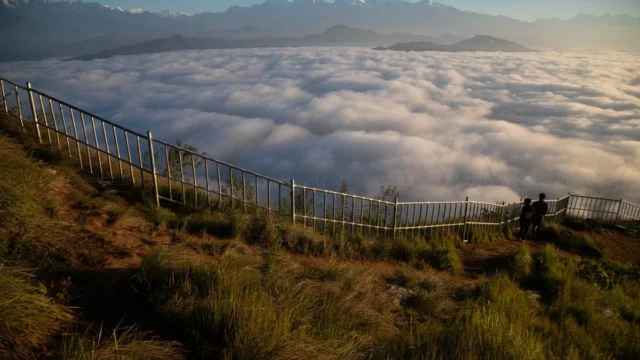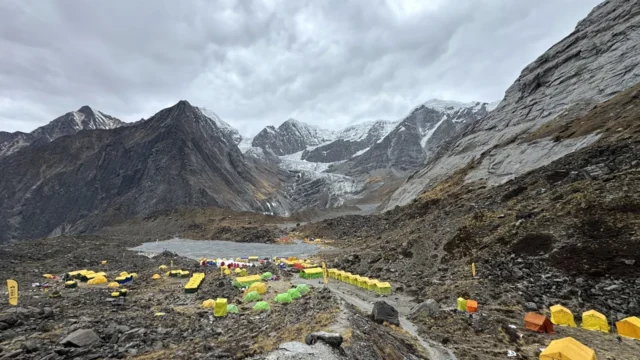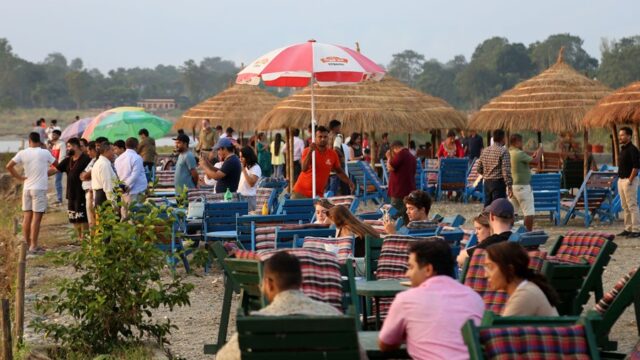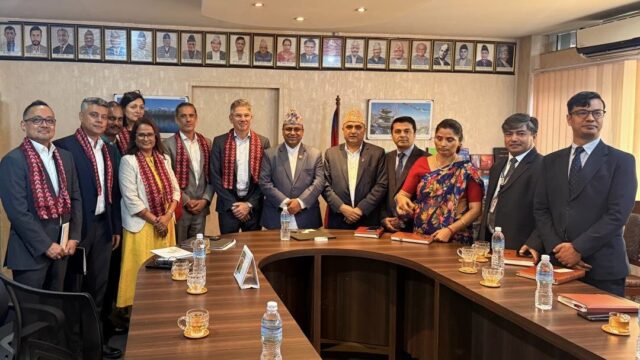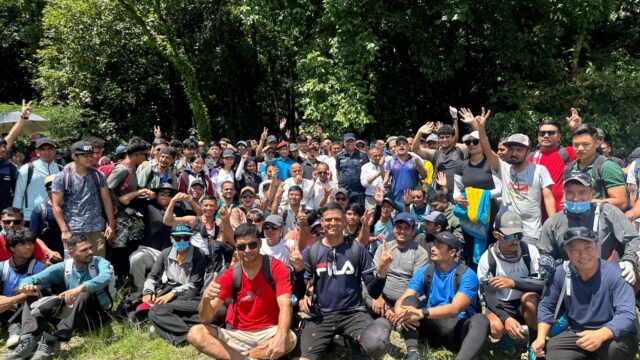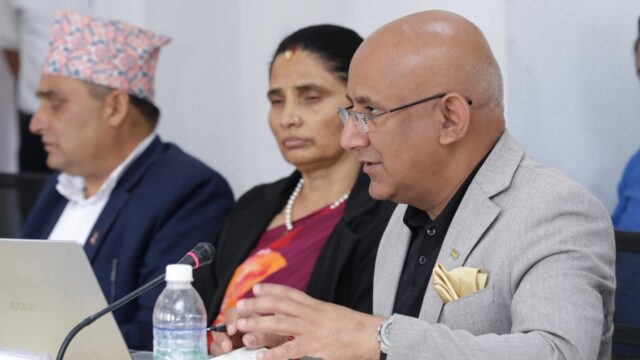Sudip Neupane from Tanahun recently visited Upper Mustang and, on his return, took a refreshing two-hour dip in the Bhurung-Tatopani hot spring located in Myagdi’s Annapurna Rural Municipality-2. “The cold and exhaustion from the Mustang trip disappeared after bathing in Tatopani,” he shared, “I felt revitalized after soaking in the warm waters.”
Bhurung-Tatopani hot spring has become a popular ‘refreshment center’ for travelers passing through the Beni-Jomsom road and trekkers on the Annapurna Circuit. The natural hot spring is known for its healing properties, providing relief from fatigue, injuries, and muscle stiffness. Visitors, especially those coming from the cold Mustang region, find warmth and comfort after bathing in the 55°C hot water.
With the start of the tourist season, the hot spring—located on the banks of the Kali Gandaki River—has seen a significant rise in both domestic and international visitors. Manager Latte Giri noted that the number of visitors has increased along with the cold weather and the influx of tourists traveling to and from Mustang. “During the peak season, around 200 to 300 people bathe daily,” he said.
The site has two pools and showers where visitors can enjoy the hot water. The bathing fee is set at NPR 50 for locals and NPR 150 for foreigners, with the facility open from 6 a.m. to 8 p.m.
Annapurna Rural Municipality has signed a contract worth NPR 5.6 million with Hotel Hotspring to operate the facility for the current fiscal year 2081/82. The nearby Tatopani hot spring in Annapurna-5, across the Kali Gandaki River, has also been contracted to Kali Gandaki Rooftop Pvt. Ltd. for NPR 2.87 million this year.
The revenue generated from the hot springs is used for various local development projects, including funding salaries for teachers at Sarvodaya Secondary School and Himalaya Basic School, maintaining health facilities, and improving the hot spring’s infrastructure. Additionally, a recently constructed suspension bridge over the Kali Gandaki River now connects Bhurung-Tatopani with the Paudwar Tatopani hot spring, further enhancing accessibility.
The hot spring has also played a role in boosting local tourism, with 20 well-equipped hotels in Tatopani Bazaar offering accommodation for over 500 visitors each night. The revenue from the hot spring also supports various conservation efforts, including measures to prevent erosion by the Kali Gandaki River.
Previously, the expansion of the Beni-Jomsom-Korla road threatened the hot spring pools, leading to concerns from locals. However, a revised road design was implemented to protect the hot spring while also addressing riverbank erosion concerns.
Tatopani’s soothing waters continue to be a major attraction for both trekkers and tourists, providing not only relaxation but also contributing to the local economy and community development.
Source: RSS

